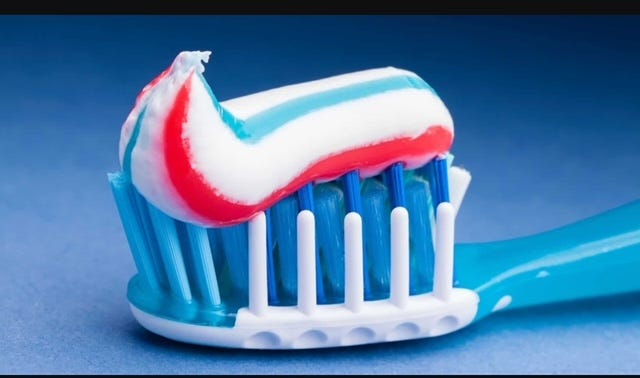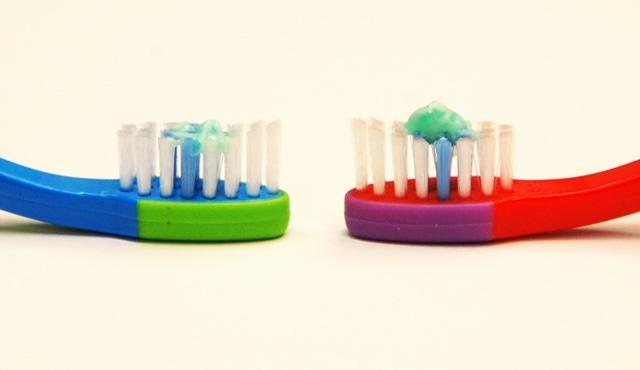Can You Use Too Much....
Unpacking Truth
...toothpaste when helping your children brush their teeth?
I have written about my concerns of the neurotoxic potential of fluoride overconsumption from the water we drink daily and the current lawsuit in the US Courts. This research led me to start questioning toothpaste and the possible harms when used inappropriately, especially as it relates to children. I was pleased to find that some researchers have recently published on this topic in the BDJ Open.
During my dental training, we were advised to encourage parents to use NON-fluoridated toothpaste for children who are unable to spit out oral contents. Widely available in the US, is fluoride-free toddler toothpaste that helps to encourage children to enjoy brushing through a tasty paste on their toothbrush. Every tube of fluoride containing toothpaste contains a hazard label warning to contact poison control if accidentally ingested. This fear is eliminated with fluoride-free toothpaste.
Unfortunately, once children learn to spit, they often still manage to swallow 60-80% (adults swallow 5-10%) of what is placed on their toothbrushes. Television advertising has impressed upon us a hefty swoop of paste covering the entire brush head. But this is entirely too much for both children and adults. The study conducted by German researchers found that parents overdosed the amount of toothpaste by 6 to 7x the safe amount recommended.
Now for the reality of how much you should be using.
If you are using a fluoridated toothpaste for your toddler who is unable to spit after brushing, the recommended dosing is a 'grain of rice' sized amount of product. Blue toothbrush in photo.
If you are using a fluoridated toothpaste for a child who can spit, the recommended dosing is a pea sized amount like the red toothbrush in the photo.
Even with widespread use of fluoride toothpaste around the globe, early childhood cavities remain an epidemic that affects around 50% of children worldwide. Interestingly, the US has a higher incidence of decay, with 78% of our population drinking fluoridated water, than Europe with only 3% drinking fluoridated water. My hope is that an honest discussion of the harms of a lifetime exposure to a known toxic substance will soon bring to the table more productive means of decay prevention for all, not just our children. Focusing on a healthy diet would be an excellent step forward and would have the downstream benefit of eliminating the metabolic diseases that are draining our nation's health.
You may be wondering if there are alternatives to fluoride that have benefits of remineralization without the risks recently revealed. Hydroxyapatite is an alternative that is one of the most studied biomaterials in the field of medicine for its proven biocompatibility and for being the main constituent of the mineral part of bone and teeth. It is broadly available in over the counter non-fluoridated toothpastes.
I currently use and recommend the following products:
NoBS by Better Biom which is a chewable tablet and hands down the best dentifrice I have ever used.
A less expensive alternative and packaged more traditionally is a toothpaste from Risewell. They have a fabulous dental floss that actually feels like it is cleaning your teeth and it is infused with hydroxyapatite to reach those areas our toothbrushes can’t. They also have one of the best tasting ‘clean’ oral rinses that I have tried.




Can we just use no toothpaste at all?
(I actually once had a dentist who recommended this... stating that if you don't use toothpaste, then you can FEEL when you teeth are clean, instead of getting a false impression from the toothpaste).
Does fluoride actually assist in the remineralisation of teeth ?